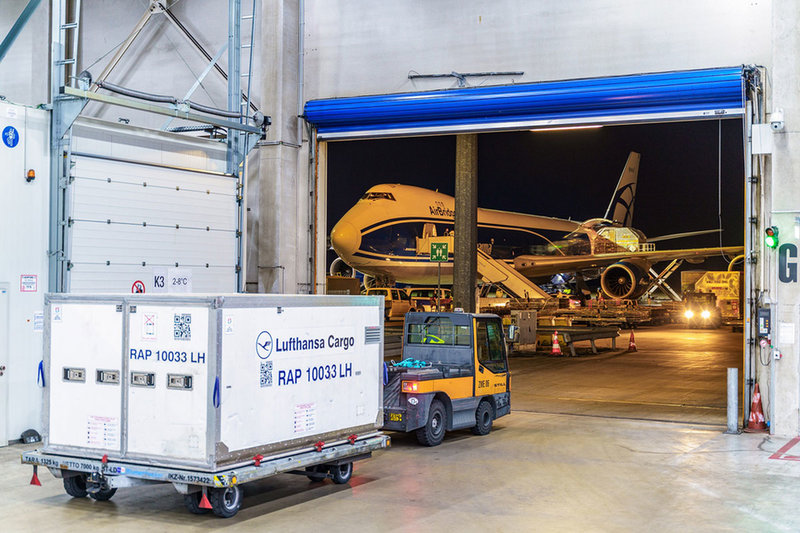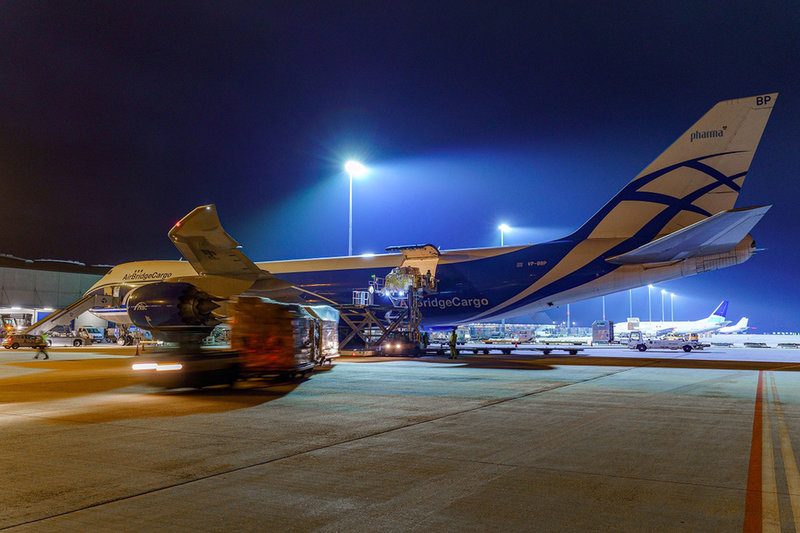CARGO
Euro vision: Amazon’s ambitions take-off at Leipzig/Halle Airport
Amazon has launched its own air cargo operations in Europe with a regional air hub at Leipzig/Halle Airport. Julian Turner talks to Mario Patyk, head of business development cargo/logistics at the airport, about Amazon Air’s arrival in Germany and the future of the air cargo sector in the wake of Covid-19.
Image: copyright
Amazon’s ascendency to dominate the brave new world of online retail is one of the undisputed wonders of modern business. From humble beginnings in his rented garage, Jeff Bezos has grown the company into the planet’s most valuable brand and amassed a fortune of more than $180bn.
While other companies have struggled to survive the Covid-19 crisis, Amazon continues to expand, adding 250,000 jobs in the third quarter of 2020 and reporting revenues of $96.15bn as a pandemic sales boost helped the Seattle-based behemoth to triple its profits and increase earnings by 37%.
At the tail end of yet another standout year, Amazon announced the launch of air cargo operations at Leipzig/Halle Airport (LEJ) in Schkeuditz, Germany, creating an additional connection within the company’s fulfilment network in Europe to better serve customers, especially during lockdowns.
The 20,000m2 cargo facility at Leipzig/Halle is already supporting Amazon customer deliveries with two daily flights.
“Attracting Amazon Air is a huge boon, not only for our airport and the public perception of it as a cargo hub, but also for the entire region,” states Mario Patyk, LEJ’s head of business development cargo/logistics.
“We are delighted that Amazon Air is now part of the (professional) logistics environment at LEJ. The decision to open its first European air freight centre here seems eminently logical to us.”
Amazon Air touches down in Europe
Amazon has leased two branded Boeing 737-800 aircraft from GE Capital Aviation Services (GECAS), which will be operated by ASL Airlines on behalf of Amazon Air in Europe. The aircraft will join the company’s fleet of more than 70 aircraft operating within Amazon Air’s global air cargo network.
The facility at LEJ is creating more than 200 jobs, in addition to more than 1,500 jobs Amazon already offers in Leipzig. The online retailer has maintained an operational base in the region since 2006.
Amazon joins the likes of DHL, the Volga-Dnepr Group and Antonov Airlines in choosing SEJ. One of the most modern cargo airports in the world, it handled around 1.4 million tonnes of freight in 2020 – an 11.7% increase compared with the previous year – making it Europe’s fifth-largest freight hub.
“LEJ is open for cargo flights round the clock, has multimodal facilities and it is located at the centre of the continent, offering ideal conditions for air freight companies and those closely related to the sector,” says Patyk.
“A total of 60 cargo airlines use our services. DHL, one of our largest customers, has been operating its largest hub in the world here since 2008 and has plans for further growth.”
We are in a prime position to handle temperature and time-critical pharmaceutical shipments.
Amazon will benefit from the direct links to the trans-European motorway system in a north-south and east-west direction, and the airport is also directly connected to the rail cargo network. The rail cargo terminal within LEJ handles and distributes about 200,000 tonnes of cargo every year.
“As a cargo-minded airport, we are able to handle all kinds of cargo planes and air freight at LEJ,” says Patyk. “This includes pharmaceutical and e-commerce shipments, as well as hazardous goods.
“Part of this involves transhipping vaccines. Thanks to the airport’s CEIV Pharma certification, we are in a prime position to handle temperature and time-critical pharmaceutical shipments round the clock.”
This could be a major draw for Amazon. In addition to customer deliveries, Amazon Air has already helped transport essential personal protection equipment for Amazon associates throughout Europe during the global pandemic, including 29 million masks, 100,000 thermometers and three million gloves.

The facility at LEJ is creating more than 200 jobs. Credit: LEJ
Amazon’s investment in its aircraft fleet
Amazon Air’s expansion into Europe is just one part of the company’s aviation investment strategy.
In early January, Amazon announced its first-ever purchase of 11 Boeing 767-300 aircraft, including seven from Delta, which will join the company’s air cargo network by 2022, and four from WestJet, which are undergoing passenger to cargo conversion and will join Amazon Air’s network in 2021.
“Our goal is to continue delivering for customers across the US in the way that they expect from Amazon, and purchasing our own aircraft is a natural next step toward that goal,” said Amazon Global Air vice-president Sarah Rhoads.
Having a mix of both leased and owned aircraft in our growing fleet allows us to better manage our operations.
“Having a mix of both leased and owned aircraft in our growing fleet allows us to better manage our operations, which in turn helps us to keep pace in meeting our customer promises.”
Since 2013, Amazon has been researching the use of electric drones to deliver packages weighing up to 5lb in under 30 minutes. According to a recent Financial Times report, the company is engaging with external manufacturers in Spain and Austria to manufacture component parts of its drone.
The report says that Amazon’s Prime Air will use a hexagon-shaped, fully-electric drone that can fly up to 15 miles, according to details released in 2019, with drones landing near customers’ homes.

Loading up air cargo at LEJ. Credit: LEJ
Air cargo in the age of Covid-19
With vaccine roll-out programmes ongoing and lockdowns still in place around the world, the online retail boom looks set to continue indefinitely. Statista reports that global retail e-commerce sales amounted to $3.53tn in 2019 and e-retail revenues are projected to grow to $6.54tn in 2022.
Such growth equates to a vital source of aviation revenue at a time when passenger services are almost completely at a standstill. In Germany, logistics is the third largest business sector after the automobile industry and commerce; logistics services generated a turnover of around €279bn in 2019.
There is currently a shortage of freight capacity in the belly of passenger planes.
“There is currently a shortage of freight capacity in the belly of passenger planes, which has also created additional demand and business at our airport,” says Patyk.
“We have been regularly handling cargo flights that use passenger planes for cargo since the beginning of the pandemic in Spring 2020, for example. The spectrum ranges from A350 to B787 and even B777 aircraft.
“LEJ is serving as a handling centre for medical aid and protective equipment in the battle against Covid-19. Millions of masks, protective gloves and rapid tests have been flown into Germany and distributed across Europe.
Thanks to the planned settlement of a new European logistics centre for disaster management near the airport, this role will continue to become even more important.
“The number of flights transporting freight grew by 8.5% to approximately 50,430 at the airport in 2020, compared with the previous year. All the signs indicate further growth in 2021 too.”
